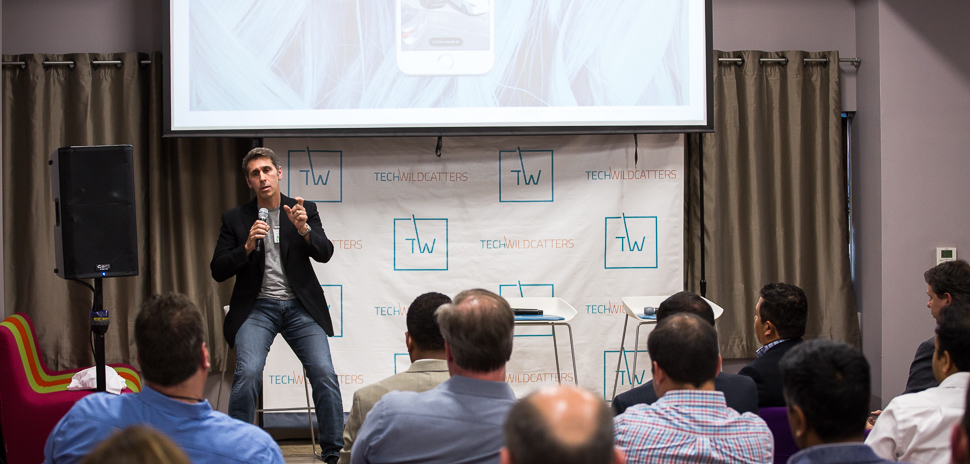Nordstrom’s personal shoppers are famous for knowing your preferences for style, color, and fabric.
Now, that same level of personalization must transition to the digital world of e-commerce if brands want to survive and thrive, said Jeriad Zoghby, global lead for personalization at Accenture Interactive.
This digital personal assistant won’t be a human being, though. Accenture’s Technology Vision 2017 annual report goes into detail about how artificial intelligence will shape the shopping experience of the future and how businesses across all industries interact with their customers. It’s just a snapshot of predictions made in the annual report meant to outline major technology trends impacting enterprise over the next three years.
“The endless aisle is great until you have to walk it.”
Jeriad Zoghby
Instead of chasing Amazon’s “people who bought this also bought this” model, Zoghby recommends really listening. If someone likes blues music, microbreweries, and open patios, a friend would put the three together and find the perfect place for them to go.
The same must happen online.
“The endless aisle is great until you have to walk it,” Zoghby said during the Accenture Technology Vision Lounge experience in Dallas last week. “We’re talking about personal curation. That shows you’re paying attention like a friend would — shrinking that endless aisle down to something that’s curated for me.”
He described one online shopping experience where he saw an advertisement recommended a certain trip for him. But, when he clicked on the ad, he started from square one.
“The idea that I have to start over, and now all preferences are gone — That’s the worst thing to experience in the world,” he said. “You’ve got to know me. I interact with you all the time. There’s no excuse for not knowing my preference for flavors and everything else.”
It’s a subtle change in philosophy but a big one, Zoghby said. Like how Amazon CEO Jeff Bezos said, he’s not in the book-selling business.
“The key is not to chase your competitors. It’s to chase the customer.”
Jeriad Zoghby
“Instead, he said, ‘We’re in the business of helping people buy books.’ Very subtle change in definition is critical,” Zoghby said. “They’re going to make it easier for you to make a decision. By reinventing that service, they disrupted that entire industry.”
The bad news is, that it’s too late to catch Amazon.
“You’re not going to beat Amazon at Amazon’s game,” Zoghby said. “They’ve got 10 years on everybody. The key is not to chase your competitors. It’s to chase the customer.”
THE RISE OF AI IN SHAPING USER EXPERIENCE
It’s about the internet of me.
“Every time an experience is personalized, or technology anticipates people’s needs and wants, we are being placed in the driver’s seat to realize them,” the Accenture tech report states. “The digital revolution we’re part of today isn’t a cold, dystopian future of robots controlling the world. Rather, it’s an age of human empowerment. It’s about us designing technology that conforms itself to people, putting us firmly in control of our own fate.”
Accenture’s research shows 85 percent of executives will invest extensively in AI-related technologies over the next three years. For its tech report, Accenture surveyed more than 5,400 business and IT executives across 31 countries from November 2016 through January 2017.
“The digital revolution we’re part of today isn’t a cold, dystopian future of robots controlling the world. Rather, it’s an age of human empowerment.”
Accenture’s Technology Vision 2017
“Not only can AI create and maintain a powerful 100 percent consistent brand experience through every interaction, but it can also use learning capabilities to tailor that experience to each individual, and rapidly evolve the experience to react to any new product or strategy the enterprise wants to implement,” according to the report. “This is a level of control that businesses have never had over their brands — with a dimension of flexibility as well.”
The report also made some bold predictions for AI’s future:
In five years, more than half of your customers will select your services based on your AI instead of your traditional brand.
In seven years, most interfaces will not have a screen and will be integrated into daily tasks.
In 10 years, digital assistants will be so pervasive they’ll keep employees productive 24/7/365 operating in the background for workplace interactions.
The report also cites the rapid success of digital platform startups like Airbnb and Uber, so-called “unicorn” startups that found a niche in a fragmented or saturated market and aggregated the services into a single point of access.
Digital has become the great democratizer, bringing luxury to the masses so anyone can have a private car like Uber, for example.
The result can be powerful for the brands that go that route.
“I’m listening to my consumers. That’s my intellectual property. That’s my goldmine because that’s my relationship with them,” Zoghby said.






























